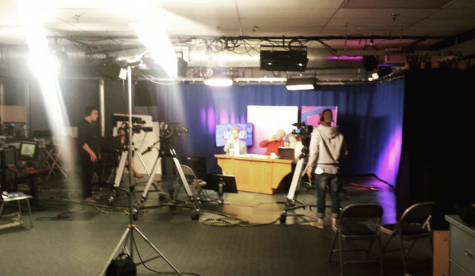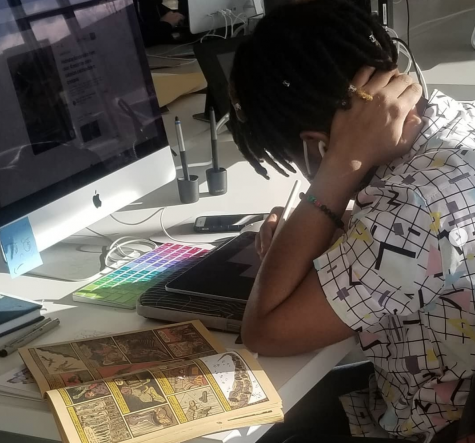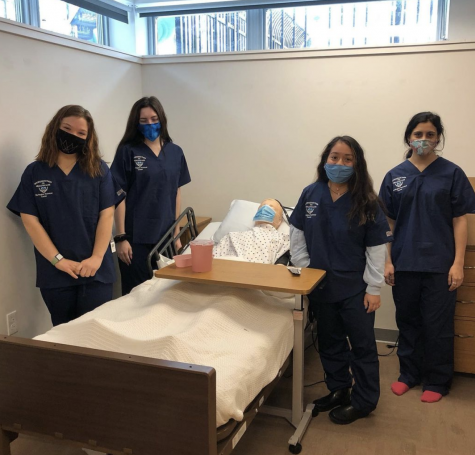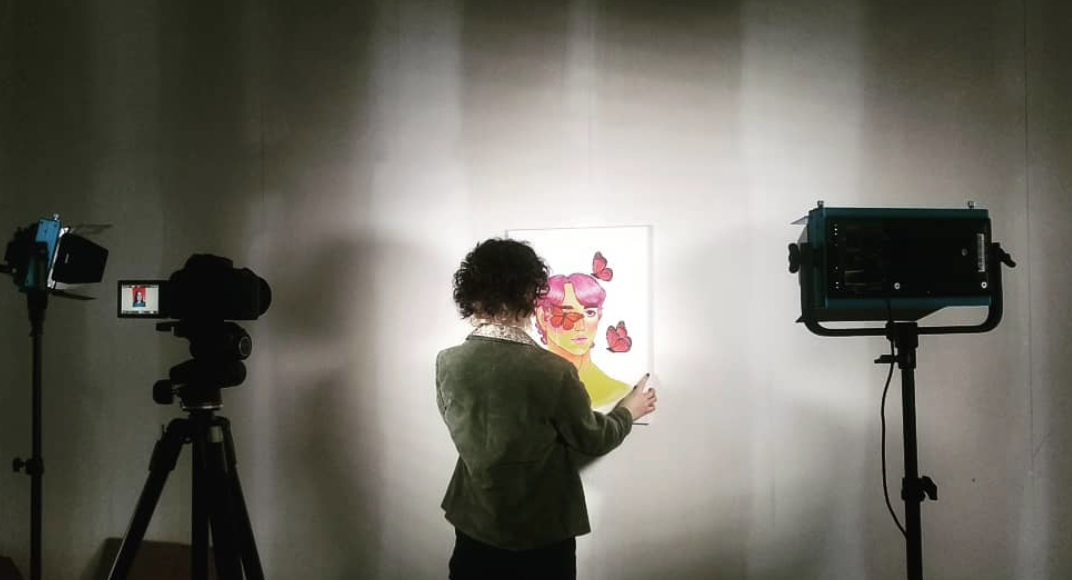BTC in 2021: What are Technical Centers Doing Now?
April 12, 2021
Since the displacement of all Burlington High School students, Burlington Technical School (BTC) has dispersed its programming throughout the city. Many of the programs have been offered spaces at a free or reduced rate. For this year, the 12 programs have found new homes in nine different locations in the community.
Although the new location that the digital media lab uses has optimal space for interaction, Covid-19 restrictions mean that programs have to make adjustments.
Digital media lab and production look especially different this year. Under normal operations, peers are encouraged to collaborate and sing or rap together. However the strictly enforced “No singing rule” puts a damper on that.

“It’s harder to find opportunities to work with other people,” BTC senior Eva Tobias said. “I really liked working and collabing with other people so it’s disappointing.”
Having multiple locations for programs does have some hidden advantages. Each program’s space was specially chosen for its needs and requirements. This allows for even more hands-on education –Aerospace and Aviation students get to learn at the Burlington International airport, experiencing the culture of the trade-in their backyard.
“People are hungry for a hands-on program. There is a great need for this,” BTC Intro to health science teacher Tracy Centracchio said. “These are the things that people can get really excited about.”
Technical education students have an increased rate of graduation, The high school graduation rate for public high schools in America has stayed steady at around 85% in recent years. According to the Association for Career and Technical Education (ACTE), that number increases to 93% for students concentrating in CTE programs.
“Once you leave the high school environment the opportunities don’t exist unless you want to pay out of pocket or take out loans or you really have to have connections to get experiences that you get at a tech center,” BTC guidance counselor Zac Poland said.

BTC also partners with Community College of Vermont (CCV) and students may graduate with up to six college credits. Tech teachers teach the material and CCV gives the credit. In a lot of cases, the added college credits are an optional opportunity for students to get ahead and get prepared with the support of a tech teacher.
“Technical education as a whole has really been rebranded over the last 10 years so that a good number of the programs at Burlington Tech are really college prep programs,”
Jason Grindgold is in his first year as principal at BTC. His experience as both a tech teacher and administrator as well as his belief in technical education gives him an important outlook coming into this unusual year of logistics and planning. Teachers and administrators of BTC have the primary goal of making sure each and every student has a plan.
“You have a choice,” Gringold said. “I want every student to be employed, enlisted, or enrolled in some kind of next step in their life.”
There is still an assumption that Technical education, sometimes called vocational education, is an alternative fast track for those who are unable to be successful in a traditional classroom setting. Technical educators are working hard to change that.
“It’s different than what vocational education was back in the day and I think there is an opportunity to expand that and really have any student participate in that and still go to any college they want,” Gringold said. “Those barriers and biases need to be broken down first.”
Teachers are professionals of the area in what they teach–this is one of the key concepts of technical education. They teach students not only the information they need but also serve as an example skill set of a person in the industry.

“It’s absolutely incredible to be able to work under the supervisor of an actual professional in the field and with people who are driven to go into that job market instead of their desire to go to an ivy league college or to impress their parents,”Trey Michael, SBHS senior said. “It was a hit in the face of reality that I can’t really shake; it felt so real and so true that the program I was in was making a difference.”
Students feel very connected to their teachers. In many tech programs, the teachers are called by their first names. Tobias feels that this personal aspect of teaching is part of what makes it so special. Especially this year when so many human connections are impaired.
“It feels like he is a student that just knows more than all of us,” Tobias said. “They want to do whatever they can to support you. You tell them what you want to do and they will help you the best they can.”
BTC is unique in its half-day model; Burlington is the only technical school in Vermont where students can come for hands-on learning and then return to their home school to take an AP class or have lunch with their friends.
Eva Demetrowitz, South Burlington Senior, is grateful for the opportunity to both take advantage of tech without having to leave all her friends and completely navigate a new school in the middle of high school.
“I get to focus on what I’m genuinely interested in which makes me want to be more engaged in class and the community, but I still feel connected to my sending school through events like spirit week and through my friends who go there,” Demetrowitz said.
BTC is running as a hybrid model– where a program that would be split into 2 a.m and a p.m class, it is now split into four sections where students are ethier A day or B day and ethier AM or PM. Being in person two days a week makes it hard to get all the information to students that would be a five-day-a-week program.
“I have so much I want to do and so much discussion I want to have, and so many pathways I want to dig deeper into; we just don’t have the time,” Centracchio said.

